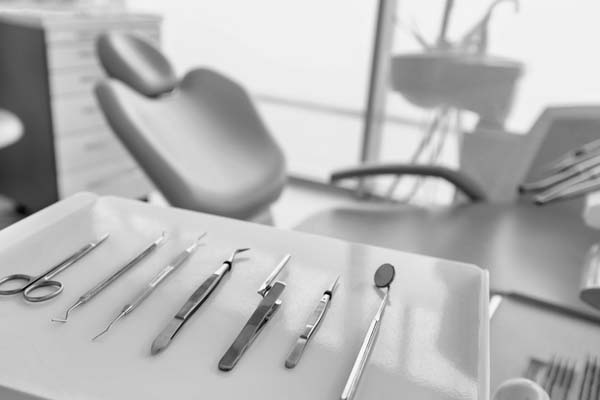An Oral Surgeon Lists Common Reasons for Tooth Extractions

An oral surgeon is trained to complete a number of different procedures, most of them with the goal of saving your natural tooth. However, when a tooth is past saving, extraction may be necessary. An extraction is the removal of a tooth by an oral surgeon. Most extractions are due to medical reasons, although restorations and replacing bad teeth also have cosmetic benefits.
There are two types of tooth extraction: simple and surgical. Simple extractions are usually performed on a tooth that is visible in the mouth (above the gumline) and is done under local anesthesia. Surgical extractions are performed when the tooth is not easily accessed. Surgical extractions are usually done on teeth that have not yet erupted or when the tooth has broken underneath the gumline.
Extractions are generally the last option, considered only as a solution after all other courses of action have been attempted in saving the tooth.
Common reasons for tooth extractions
Tooth damage due to decay
When tooth decay reaches the center of the tooth (known as the pulp), the tooth begins to slowly die. If this infection cannot be cleared by root canal therapy, it cannot be saved. The tooth must be extracted so as not to infect the jawbone or surrounding teeth.
If a tooth is not extracted and replaced with an artificial tooth when it has died, a domino effect begins to unfold. Surrounding teeth begin to move toward the weakened tooth to try and fill that role, causing bite issues and spreading the infection.
Infection to remove an impacted tooth
Wisdom teeth are infamously known for often needing extraction. If these adult molars have not emerged by age 18, removal is usually necessary. If any impacted teeth are not removed, they can easily become infected. That infection can then spread into the bloodstream, with dangerous implications.
A solution for advanced periodontal disease
Gum disease is more than just a nuisance. In its earliest stage as gingivitis, periodontal disease causes little more than bleeding gums and tooth sensitivity. But as the inflammation progresses, it can start to affect the ligaments and bone in the jaw. Periodontal disease starts from the formation of plaque at the gumline. Bacteria in the mouth builds up after eating and begins to attack the teeth and form into plaque. This bacteria can be removed by brushing and flossing.
Unfortunately, severe cases of periodontal disease can cause teeth to loosen. The gums support the teeth and keep them safe from harmful debris, but they also hold them in place. Periodontal disease causes the gums to recede, exposing the tooth and making it loose. At this point, the tooth must be extracted and replaced to prevent further gum disease and destruction of bone.
In combination with orthodontic treatment
To achieve a straight smile, an oral surgeon may recommend pulling teeth. Complicated bite problems, like crowded teeth, protruding front teeth and a narrow palate even after the use of palatal expanders, can be cause for extractions. Strategically removing teeth from the back of the mouth makes more room for the front teeth. Sometimes, extractions are necessary for successful orthodontic treatment.
Let's get started
Request an appointment here: https://www.monroe.premieroralsurgeryct.com or call Premier Oral Surgery & Implantology Center at (475) 231-1333 for an appointment in our Monroe office.
Check out what others are saying about our dental services on Yelp: Oral Surgery in Monroe, CT.
Related Posts
Searching for the most knowledgeable and skilled oral surgeon in your area can be challenging. But if you find the right dental care provider, you can achieve the enhancements that you want or need. Finding the right provider will need a little effort. Here are some tips you must consider for choosing the oral surgeon…
Learning that you need an apicoectomy can cause anxiety. This procedure is a level higher than a root canal. Understanding this endodontic surgery can help you prepare for your upcoming appointment. Here are the things that you need to know about an apicoectomy.Research shows that dental roots are complicated structures. Bacteria invading the root branches…
Impacted teeth are a common dental condition where a tooth fails to fully erupt into its proper position in the mouth. This can occur due to crowding, abnormal growth angles, or obstruction by other teeth. Oral surgery, performed by specially trained oral surgeons, plays a critical role in managing impacted teeth, especially when complications arise…
Your oral surgeon will recommend the right oral surgery for your needs. Each treatment corrects a specific issue and can enhance your oral health in different ways. Knowing these procedures can prepare you well for the next visits. Here are the common oral surgery procedures and how they can benefit you.The oral surgeon will recommend…
